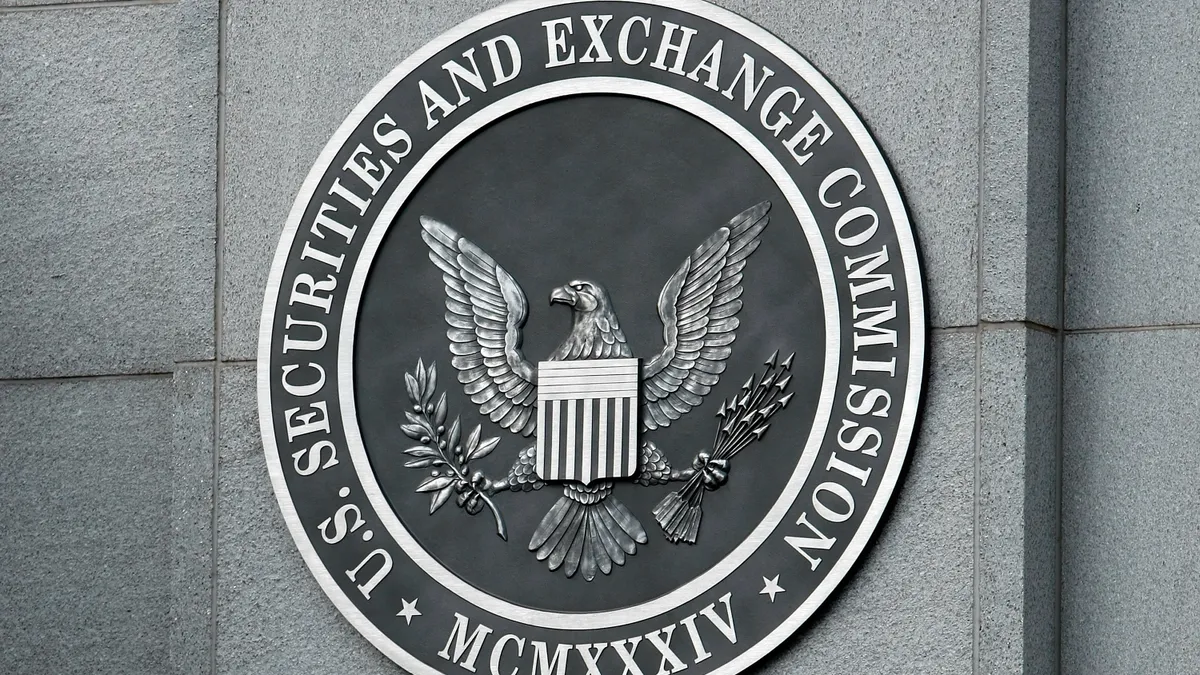Dive Brief:
- The International Organization of Securities Commissions (IOSCO), made up of regulators in 130 jurisdictions worldwide, said today its members have begun trading information and jointly monitoring deals involving special purpose acquisition companies (SPACs).
-
“While SPACs have long existed, transactions have surged recently, drawing regulatory attention to the issues SPACs raise,” IOSCO said in a statement after the first meeting of its SPAC Network. “While SPACs may offer alternative sources of funding and provide opportunities for investors, they may also raise regulatory concerns.”
-
IOSCO sets global standards for securities regulation, with a membership overseeing more than 95% of the world’s securities markets. Its SPAC Network will “exchange experiences on non-traditional IPOs via SPACS and discuss emerging issues related to investor protection and fair, orderly and efficient markets,” according to Jean-Paul Servais, chairman of Belgium’s Financial Services and Markets Authority and vice chair of the IOSCO Board.
Dive Insight:
Global SPAC IPOs boomed during the first half of 2021 — exceeding the record level set for all of last year — with 634 transactions completed, EY said in a report. Among those, 182 SPACs announced acquisitions by the end of June valued at a total of $470 billion and 452 SPACs with about $136.5 billion in funds were looking for investment targets.
“Deal pressure is quickly building as more SPACs are now in the market looking for the limited number of high-quality companies and, as a result, standard transaction terms and valuations have become more competitive and negotiable,” EY said.
While the U.S. SPAC market is the largest, the value and volume of SPAC transactions in Europe hit a record during the first six months of 2021, accounting for 8% of IPO activity and 10% of IPO proceeds across the region’s exchanges, EY said.
European Union regulators have considered listing requirements for SPACs, EY said, adding “we expect more SPACs on Euronext, Deutsche Börse and NASDAQ OMX exchanges in coming months.”
In the U.K., the Financial Conduct Authority (FCA) today said it plans to ease regulatory requirements for SPACs.
The FCA has required a SPAC to suspend trading in shares when the SPAC identified a target company. The regulator now is considering waiving the rule if a SPAC has raised at least $139 million (100 million pounds) from investors. The new regulation is scheduled to take effect on Aug. 10.
“The final rules aim to provide more flexibility to larger SPACs, provided they embed certain features that promote investor protection and the smooth operation of our markets,” the FCA said today in a statement. “Private companies listing in the U.K. via a SPAC will also still be subject to the full rigour of the FCA’s listing rules and transparency and disclosure obligations.”
“SPACs continue to have risks and remain a more complex investment, which investors should ensure they can adequately assess and understand before investing,” according to the FCA, an IOSCO member.
In the U.S., deal-makers in June navigated stricter Securities and Exchange Commission (SEC) oversight and completed 27 SPAC mergers, a monthly record and the start of a recovery that will likely gain strength during the remainder of 2021, EY said.
“While SPAC formation frenzy has slowed from record levels, the lull caused by the SEC guidance is behind us and deals are being announced daily,” EY added. “SPAC activity is expected to remain steady over the next couple of months, picking up speed in Q3 2021 and toward the end of the year.”
At the end of June, 150 SPACs are reported to have found targets and other SPACs “are rushing to identify targets,” EY said. “High quality target companies could have stronger bargaining power,” EY said, adding that “with more scrutiny from the SEC, along with improved aftermarket performance, we can expect more quality SPAC deals being announced and executed, which is good news for investors.”
The SEC, an IOSCO member, issued guidance in April cautioning companies about the accounting treatment of SPAC warrants and the liability risk of forward-looking disclosures. SEC staff said in an April 12 statement that SPAC warrants, depending on their terms, should be treated as liabilities rather than as equity investments.
“As a result, many SPACs had to restate their financial statements, a process that should have been completed by June,” EY said.












